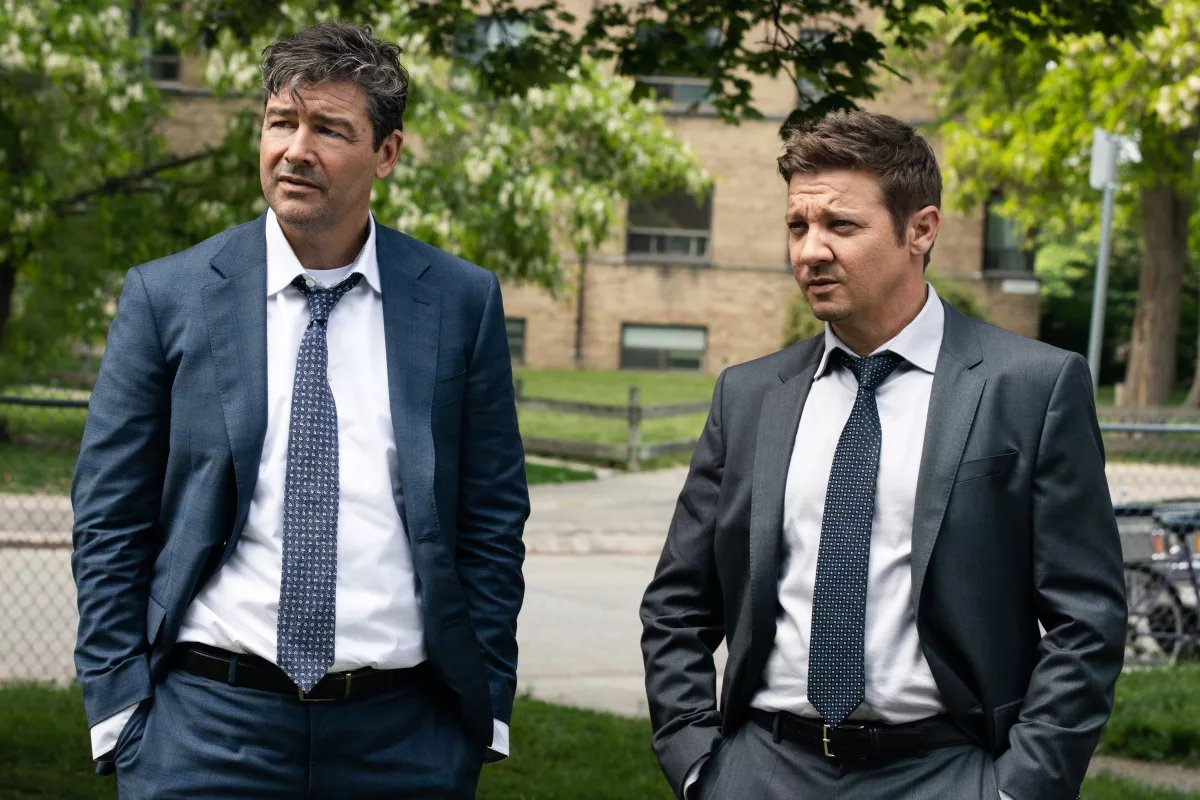Each new Taylor Sheridan project finds a new facet of American bleakness. The banking and housing crises in “Hell or High Water,” the war on drugs and the violence along the American/Mexican border in “Sicario” and “Sicario 2: Day of the Soldado,” widespread violence against Indigenous women and the tangled bureaucracies involving reservations in “Wind River,” and manifest destiny and “real America” posturing in “Yellowstone.” It’s a list of increasingly reactionary projects that rely on the fetishization of blue-collar America to belabor their points, and Sheridan’s latest, “Mayor of Kingstown,” is more of the same.
Late-stage capitalism and the prison-industrial complex are Sheridan and co-creator Hugh Dillon’s focal points in “Mayor of Kingstown,” which is set in Kingstown, Mich. (Middle America, Sheridan’s bread and butter!) The series reunites Sheridan and Dillon with Jeremy Renner, who starred in “Wind River,” and also features an array of familiar faces to fans of Sheridan’s work (Aidan Gillen, James Jordan) and of prestige TV in general (Kyle Chandler). And the story has a broad familiarity about it, too: organized crime, abused women, righteous men operating outside of the law, awful men operating within it. Sheridan loves to craft himself a morally conflicted white man who simply cannot stop wielding violence as a way to solve his problems, and that’s “Mayor of Kingstown” to a tee.
And yet even for people who enjoy watching Sheridan’s puffy-chested, secretly vulnerable, often-gun-wielding neo-cowboys, “Mayor of Kingstown” is a particularly brutal watch. Exploded meth labs and burnt corpses. A prison attack and a body left to bleed out from dozens of stab wounds. A woman’s sexual assault and murder. Sheridan recurrently turns to gory imagery to support his ideas of America as a country in decline if not for the selflessness of his agonized, principled heroes, and “Mayor of Kingstown” amps up that approach. The first three episodes provided for review set a grueling tone, with the expectation of more to come.

“Mayor of Kingstown” centers Renner as Mike McClusky, the middle brother of a trio living in the claustrophobic Kingstown: “This is a company town, and the business is incarceration,” Mike explains. The town boasts seven prisons housing 20,000 people in a 10-mile radius, and nearly everyone else in the town is connected to the prisons either by working there or knowing people who are serving time there. And in this atmosphere of “no hope, no future,” Mike explains, his older brother Mitch is the town’s unofficial mayor. Kingstown has an actual elected leader, but Mitch is the town’s most connected organized criminal, with a waiting room full of people wanting favors on both sides of the law.
While Mike basically serves as Mitch’s enforcer and right-hand man, their younger brother Kyle (Taylor Handley) is a local police officer, living with his wife Tracy (Nishi Munshi) and his mother Mariam (Dianne Wiest). Mariam teaches at the local women’s prison, with her history lessons diving into the devastation of the global slave trade, the Civil War, and the genocide of Indigenous peoples, and she is aghast at Mike and Mitch. They’re the kind of white men she’s spent her life railing against, but they’re the only family she has left.
With that familial drama introduced, “Mayor of Kingstown” then pivots into the secret deals, betrayals, and machinations of Mitch, Mike, and the numerous gangs and factions with which they work. The local police, most of whom have military experience and who understand “Afghanistan” as a code word for torturing citizens for information. The prison guards, who insist on treating the prisoners cruelly in order to assert their authority. The FBI, whose representatives are almost always playing both sides of the law. And the various racially divided gangs who do business in Kingstown, whether it’s running drugs or women. Mike, who served time years ago, has a hand in all of this and a grasp of all the various players, and his goal—or so he says—is to keep the peace.

There wouldn’t be a show if Mike were successful, though, so “Mayor of Kingstown” episodes are divided between self-contained narratives and more overarching explorations of the McClusky family and how they came to amass all this power. Scripts are full of the musingly fatalistic dialogue that Sheridan favors, but to Renner’s credit, he’s built up a steady filmography of tough guys who feel betrayed by their own capacity for savagery, and he fits right in here. As Mitch, he’s the guy who hates how much he knows but who can’t bear not using that knowledge to try and make things better.
While the situations the series sets up for Mitch are often self-serving (Mitch explaining the lethal-injection process to a grieving Spanish-speaking family while they’re in the room watching it happen; urging a criminal to turn himself in so he can get a fair shot at justice), Renner carries them with a believable amount of regret and melancholy. He’s got a great grumpy face while smoking, and contrasts well with the sardonic Chandler. Sheridan makes a fine visual point by framing both men against the wide-open waterfront, its expanse contrasting with the escalating chaos of their lives. Wiest is well-placed as the disappointed matriarch, and while Handley is distractingly tan, he pulls off the ambitiously striving little brother character who can’t help but slide into his older siblings’ bad behaviors. And particularly great is Tobi Bamtefa as Bunny, a Crip representative who forms a kind of friendship with Mitch over their shared responsibilities and regrets. His brashness and warmth are an unexpected combination.
But all these promising performances are set against a story that so far seems uninterested in complicating the alleged heroism of its protagonists, and that would rather dive deeper into doom and gloom than consider the circumstances that lead to such fraught divides between the powerful and the powerless. Sheridan is capable of moments of incredible insight regarding the American condition, and maybe “Mayor of Kingstown” will eventually get there. In its first three episodes, though, the series feels just as trapped as Mitch: “I’m a felon with no skills. Where the hell am I gonna go?” Maybe not to Kingstown.
“Mayor of Kingstown” premieres on Paramount+ on November 14th. Three episodes screened for review.












